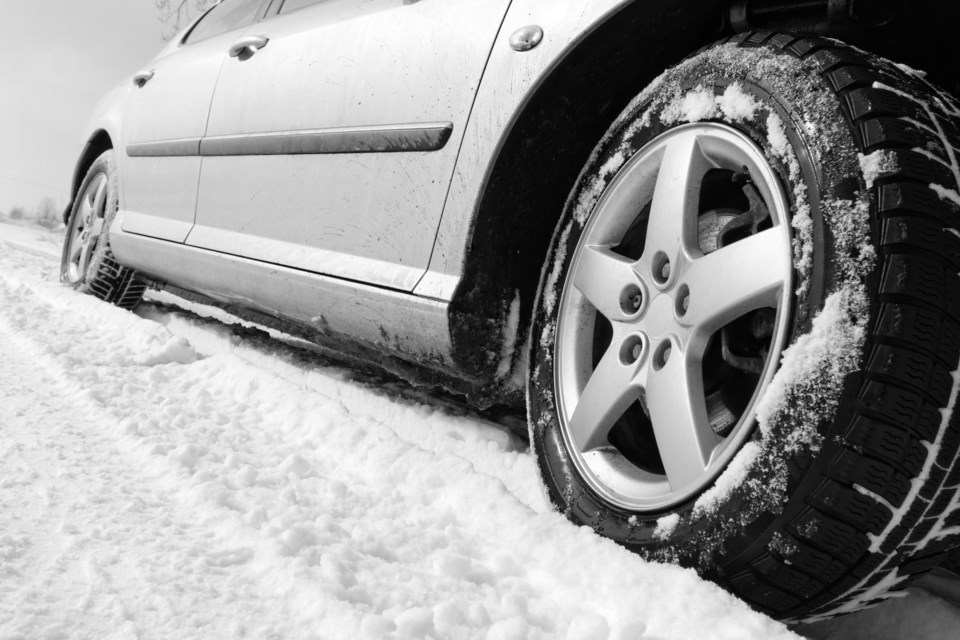The Ontario Safety League says an estimated one-third of Ontario drivers don't use winter tires, but it still prefers education over legislation that would make winter tires mandatory.
For now, the one thing OSL president and CEO David Patterson would like the government to do is remove the HST on winter tires.
"I think that's the most appropriate government device," he said.
Paterson believes the federal government is reluctant to take the step because there would then be pressure to remove HST from other items, while the province doesn't want to surrender the tax revenue.
In Quebec, winter tires are mandatory between Dec. 15 and March 15.
In an interview with tbnewswatch.com, Patterson noted the 65 per cent voluntary compliance rate across Ontario is a significant improvement from the estimated 50 per cent compliance a few years ago.
"How to get our participation up to the (80 to 85 per cent) level that it was in Quebec before it was made mandatory is critical," he said.
Patterson believes education remains the proper approach for this province for the time being at least.
"You really can't change safety behaviour by simply saying we now have a fine for that, because people obviously have to buy in on the effectiveness of the program."
He added legislation creates the risk that "the education piece gets lost in the enforcement piece, so people really don't understand why they they're putting them on. And secondly, it allows for a huge flood into the market of substandard tires, which is what occurred in Quebec" when winter tires were mandated two years ago.
Patterson acknowledged that winter tire usage is likely considerably higher in northern Ontario than southern Ontario. "I'd be hard-pressed to find somebody in Thunder Bay who doesn't see the value in winter tires, for example...so we're really working hard on that southern Ontario end, so that people realize that, like boots in the winter, that's what you really need regardless of where you are."
The Safety League executive also noted the positive results of Ontario's move requiring insurance companies to give a discount to drivers who install winter tires as of January 1, 2016. He described that as "a more appropriate incentive" than legislating the use of winter tires.
Patterson wants to give Ontario drivers who are still holding out about three more years to respond to ongoing education about the value of winter tires, after which "We could re-evaluate and see if enforcement would be a valuable piece."
Part of the education process, he said, is dispelling what he described as "the three myths" about winter tires:
- New all-season tires are just as good as winter tires
- Four-wheel-drive vehicles do not require winter tires
- Bigger vehicles have a solid footprint and do not require the extra traction from winter tires
Patterson said none of those assertions is true, and science and hard data that's become available may assist in the education process. He said Collision Reporting Centres around the province are proving to be a good source of information including the frequency of traffic accidents involving vehicles without winter tires. "For us, (they) have become the greatest current data collection sites, period."
Details about the frequency of collisions in Thunder Bay involving vehicles not equipped with winter tires were not available Monday from Thunder Bay Police.
